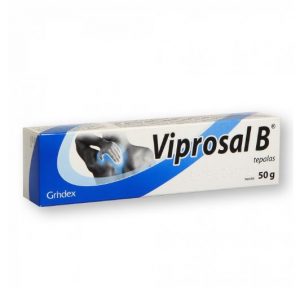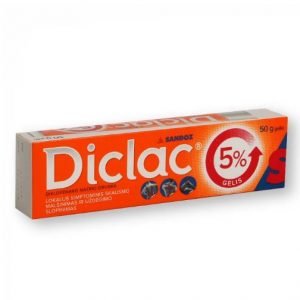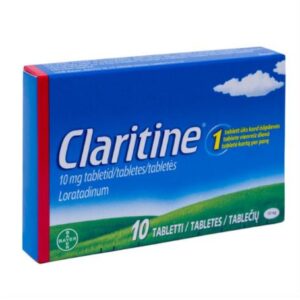What is Gripex 500MG/30MG/15MG?
Relieving pain, congestion, cough, and throat and airway irritation due to colds, flu, or hay fever. It may also be used for other conditions as determined by your doctor.
Gripex 500mg/30mg/15mg is an analgesic, decongestant, cough suppressant, and expectorant combination. It works by constricting blood vessels and reducing swelling in the nasal passages, loosening mucus and lung secretions in the chest, and making coughs more productive. The analgesic and cough suppressant works in the brain to decrease pain and to help decrease the cough reflex to reduce a dry cough.
Before you use:
Do not use Gripex for:
Hypersensitivity to the active substances or to any of the ingredients of the product.
-Concomitant use of other medicines that contain acetaminophen.
Treatment with MAO inhibitors or earlier than two weeks after discontinuation of their use.
Congenital deficiency of glucose-6-phosphate dehydrogenase.
Severe hepatic or renal insufficiency.
Severe hypertension.
Ischemic heart disease.
Alcoholism.
Asthma, COPD
Respiratory failure, respiratory depression.
During pregnancy and lactation.
Do not use in children under 12 years of age.
Take special care with Gripex
Acceptance of the product by people with liver failure and alcohol abusers and starving, there is a risk of liver damage. The product should be used with caution in patients with renal insufficiency, hypertension, cardiac arrhythmias, emphysema, increased intraocular pressure, prostate adenoma, hyperthyroidism, diabetes, and in patients treated with anxiolytic agents, tricyclic antidepressants, other sympathomimetics (eg products, reducing hyperemia), appetite suppressant drugs and amphetamine-like psychostimulants. The product should not be administered to patients with chronic productive cough. This medicinal product must not be used in patients with respiratory failure, bronchial asthma and those at risk of respiratory failure. Gripex should be used with caution in patients taking antiplatelet products. During treatment with the drug was banned alcohol.
Consult your doctor if symptoms worsen or do not disappear after three days.
Talk to your doctor, even if the precautions listed above refer to conditions in the past.
Taking other medicines
The information contained in this leaflet can also apply to medicinal products used in the past or medicines that will apply in the future. Please tell your doctor or pharmacist if you are taking or have recently taken any other medicines, including medicines obtained without a prescription.
Interaction Gripex with other medicinal products is the result of interaction of active ingredients.
Paracetamol
Due to the risk of overdose, this product should not be taken with other medicines that contain acetaminophen.
Drugs that accelerate gastric emptying (eg, metoclopramide) speeds absorption of paracetamol, while drugs that slow gastric emptying (eg, propantheline) can delay the absorption of paracetamol.
Concomitant use of MAO inhibitors and paracetamol, and application of the product earlier than two weeks after discontinuation of these drugs may induce excitement and fever.
Concomitant use of paracetamol and zidovudine (AZT) may potentiate the toxic effects of zidovudine compared to bone marrow.
Paracetamol may increase the effect of antithrombotic agents (coumarin derivatives).
Co-administration of paracetamol with drugs that enhance hepatic metabolism, eg. hypnotics or anti-epileptic drugs (eg, phenobarbital, phenytoin, carbamazepine) and rifampicin may lead to liver damage, even when using the recommended doses of acetaminophen.
The consumption of alcohol during treatment with acetaminophen leads to the formation of toxic
metabolite that causes necrosis of liver cells, leading to liver failure.
Pseudoephedrine
Co-administration of albuterol may enhance the vasoconstrictive effects. Do not use together with aminophylline and sympathomimetic agents.
Concomitant administration of other sympathomimetic agents, such. tools that reduce hyperemia, suppress appetite or psychostimulants similar to amphetamines may lead to increased blood pressure.
Ammonium chloride extended duration of effect of pseudoephedrine.
Neutralizing agents (used in the treatment of peptic ulcer) may increase the absorption of pseudoephedrine.
MAO inhibitors slow the elimination of pseudoephedrine from the body. Pseudoephedrine reduces the effects of antihypertensive medications and can affect the action of digitalis glycosides.
Do not use while furazolidin.
Dextromethorphan
Do not use concomitantly with MAO inhibitors.
Use with food and drink
The absorption of the product is not affected significantly by food.
Pregnancy and lactation
Gripex is contraindicated during pregnancy and lactation
Driving and operating machiner
While taking Gripex, driving or operating machinery should be performed with caution because of the risk of sleep and dizziness.
How to take Gripex
Adults: Oral. 1 to 2 tablets 3-4 times daily. Do not take more than 8 tablets per day.
Children over 12 years of age: Oral. 1 to 2 tablets three times daily. Do not take more than 6 tablets daily.
If you take an overdose:
Immediately contact your doctor or pharmacist. Gripex contains three active substances. Manifestations of overdosage may result from the effects of one of them or all components.
Intentional or accidental overdose of this product may cause a few hours or more after ingestion, events such as nausea, vomiting, very profuse sweating, drowsiness, weakness, restlessness and tremor, nistagym, increase in blood pressure, fainting, shortness of breath, and dysuria. These symptoms may disappear the next day, although developed liver failure, which later manifests itself as a feeling of epigastric tear, resume nausea and jaundice. In case of overdose should be immediately sought medical assistance. Treatment should be performed in a hospital setting. It consists in accelerating the elimination of ingredients and maintain vital functions. In paracetamol overdose may require application of the antidote (N-acetylcysteine and / or methionine).
If you forget to take Gripex
Gripex used for immediate treatment of the signs and symptoms that occur when the common cold or flu. If you forget to take this medicine, and manifestations of the disease still remain, take the next dose Gripex. Do not take a double dose to make up for a missed dose. If you have any further questions on the use of Gripex, ask your doctor or pharmacist.
SIDE EFFECTS
Like all medicines, Gripex can cause side effects, although not everybody gets them.
This product contains three active substances. Adverse reactions may be due to the effects of one of them or all components.
Paracetamol
Hepatobiliary disorders: The most severe adverse reaction associated with the use of acetaminophen acute liver failure is usually caused by an overdose. Gastrointestinal disorders: nausea, vomiting, indigestion. Allergic reactions: urticaria, erythema, rash, pigmentary dermatosis anaphylactic shock. Blood and lymphatic system disorders: thrombocytopenia (low platelets), agranulocytosis (lack of granulocytes in the blood), granulocytopenia (low blood count).
Pseudoephedrine
Nervous system disorders: headache, anxiety, fatigue, insomnia, dizziness and hallucinations, sweating. Gastrointestinal disorders: nausea, vomiting, dry mouth.
Cardiac disorders in susceptible patients may experience slight increases in blood pressure and speed up heart rate, palpitations.
Renal and urinary disorders: renal colic, papillary necrosis, acute renal failure, kidney stones, dysuria (painful urination and frequent) and urinary retention, particularly in patients with prostatic adenoma.
Dextromethorphan
Respiratory disorders: dyspnea (difficulty breathing), asthma attacks and lower blood pressure (which can even cause symptoms of shock). Gastrointestinal disorders: nausea, vomiting, constipation.
Skin: allergic skin reactions, flushing, rash.
If any of the side effects gets serious, or you notice other effects not listed in this leaflet, please tell your doctor or pharmacist.
How To Store Gripex
Store at temperatures below 25 ° C. Keep out of reach of children.
Do not use after the expiry date stated on the pack.
Medicines should not be disposed of via wastewater or household waste. Ask your pharmacist how to dispose of medicines no longer required. These measures will help to protect the environment.
Additional information Gripex
The active substances are:
Paracetamol – 500.0 mg
Pseudoephedrine hydrochloride, 30.0 mg
Dekstrometorfanov hydrobromide – 15.0 m
The other ingredients are povidone, microcrystalline cellulose, crospovidone, gelatinised starch, stearic acid, colloidal silica.
Coating: hydroxypropyl methylcellulose, titanium dioxide, aluminum lake with tartrazine, macrogol 400.
Inscription on tablet: shellac, iron oxide (black), butyl alcohol, isopropyl alcohol, ammonium hydroxide, propylene glycol







Greta –
Thanks!